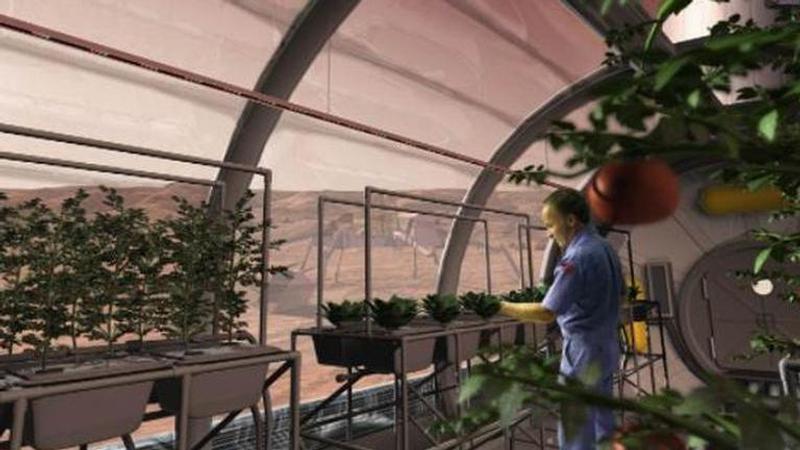Published 22:37 IST, March 22nd 2022
Bones of Mars-bound astronauts can be saved using genetically-edited lettuce: Study
University of California (UC), Davis experts claim to have found a way using gene-editing in another crucial aspect of cosmic exploration- space farming.

With each passing day, scientists are foraying ahead on their path to expand humanity beyond the low-Earth orbit (LEO) to the Moon and eventually Mars. However, it has been evident that long-duration stay in space results in harsh effects upon astronauts and their overall health. Citing previous research, NASA has highlighted in the past that staying in outer space for a considerable amount of time leads to a condition called osteopenia, which decreases bone density and increases the risk of fractures. In a bid to save astronauts from this condition, experts from the University of California (UC) Davis claim to have found a way using gene-editing in another crucial aspect of cosmic exploration- space farming.
How would space farming save from osteopenia?
In their latest research, the UC Davis scientists revealed that they have developed a transgenic lettuce, which is capable of producing the human parathyroid hormone (PTH) which stimulates bone formation. According to the experts, this lettuce can be grown in space and would spare the astronauts the burden of carrying medication that contains a peptide fragment of the PTH.
Dr. Somen Nandi, one of the authors of the study, said as per Daily Mail, "Astronauts can carry transgenic seeds, which are very tiny- you can have a few thousand seeds in a vial about the size of your thumb and grow them just like regular lettuce. They could use the plants to synthesize pharmaceuticals, such as PTH, on an as-required basis and then eat the plants". The researchers further noted that the astronauts would need about 380 grams of the lettuce-derived PTH to maintain their bone density. Interestingly, efforts are being made to boost the amount of hormone from a certain amount of lettuce to reduce the consumption quantity. It is worth mentioning that the lettuce is yet to be tested although the engineers are confident that it would taste very much like regular ones.
Trips to Mars and the risks
Current estimates suggest that trips to Mars using the current technology would take at least three years, which is enough to degrade the bones of astronauts. Those living aboard the International Space Station (ISS) are able to maintain their muscles and bones through numerous exercises and normally stay for six months at most. However, the space explorers who would spend years in zero gravity, hopefully starting the 2030s, would need more ideas and technologies including ones involving space farming. According to Daily Mail, Kevin Yates, a researcher on the project, said, "I would be very surprised that if, by the time we send astronauts to Mars, plants aren't being used to produce pharmaceuticals and other beneficial compounds".
Image: NASA
Updated 22:37 IST, March 22nd 2022



